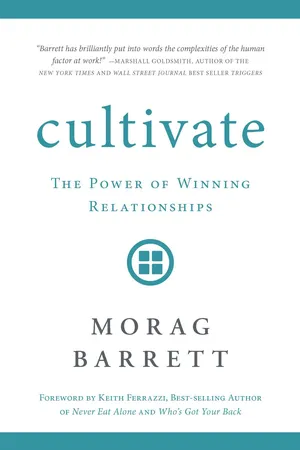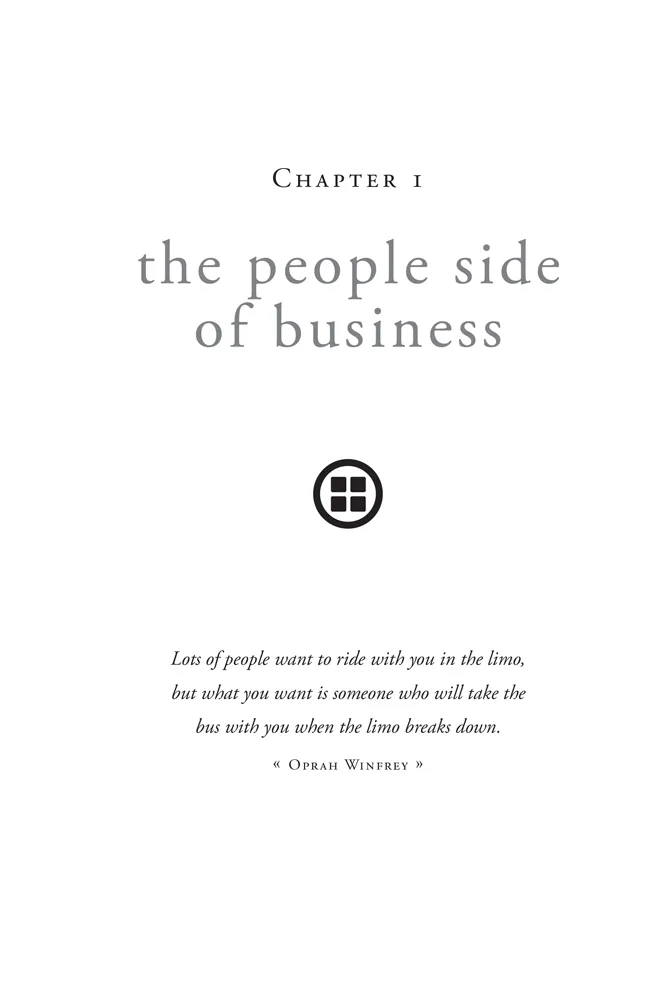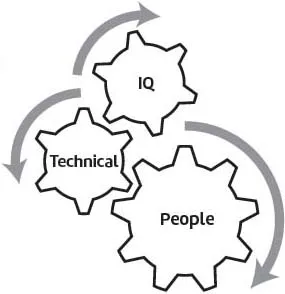![]()
We’ve all worked with people we find irritating: the person with an ego so huge the office has to install double doors to accommodate his or her super-sized head; the colleague who just can’t stop talking about anything but work; or the poor soul who’s desperate to share complaints every day.
One approach might be to avoid these people at all costs, but what if they’re your boss or your peer? You’ll need to spend a considerable amount of time in meetings with them, or working side-by-side, and your success will be intertwined with theirs.
Working with people who drive you nuts is exhausting and can, unfortunately, impact your attitude and performance. Emotions are infectious. Relationships are emotional.
Think about it. Have you ever walked into a room and just sensed, without talking to anyone, that something was up? Our emotional intelligence enables us to pick up on these clues, discriminate between them, and use this information to inform our thinking and actions to impact our behavior.
Being the smartest person in the room (IQ) is no longer (and may never have been) enough to ensure long-term success; technical skills and knowledge only contribute part of the equation. Emotional intelligence (EQ or EI), or people skills, is as important, if not more so, than IQ.
Emotional intelligence is the capacity for effectively recognizing and managing our own emotions and those of others. We can either leverage emotions to make the most of our important business and personal relationships or ignore them with potentially damaging results. In his book Working with Emotional Intelligence, Daniel Goleman1 discusses four emotional intelligence skills, grouped under two main categories: personal competence and social competence.
Personal competence includes the following qualities:
- Self-awareness—how accurately you can identify your emotions in the moment and understand your tendencies across time and situation.
- Self-management—how you use awareness of your emotions to create the behavior that you want.
Once you have begun to master yourself, you can then move on to the qualities of social competence:
- Social awareness—how well you read the emotions of other people.
- Relationship management—how you use the first three emotional intelligence skills to manage your interactions with other people.
When I am working with teams, I will ask participants to identify three colleagues, bosses, peers, or subordinates, they would jump at the chance to work with again. We then explore what made these people memorable. Certain characteristics are mentioned again and again:
- They saw me as an individual; they cared about me.
- They connected with me as a person.
- They made time for me and listened to my ideas and suggestions.
- They gave me constructive feedback.
- They made me feel valued.
- They challenged me to deliver outstanding results.
What stands out is that the majority of the qualities are interpersonal—about how the person interacted with them, as well as the values he or she demonstrated. While we may recall how smart someone was, what people remember is the ability to connect with someone as a person, as a human being, and not simply as an employee, functional expert, or vendor.
If It Ain’t Broke
Many of us understand the philosophical importance of relationships but struggle to put that understanding into action. I get plenty of agreement with these early concepts. However, when I ask, “How much time are you investing in cultivating winning relationships?” very few can say they devote deliberate effort.
Relationships are assumed to be effective until proven otherwise. Neutral relationships are valued as positive, when in fact the opposite is true.
Focus is on the task at hand, the “what needs to be done,” and little or no time is devoted to the people side of “how we will get the task done.” Success is measured in terms of individual results and individual contribution. Unfortunately, this approach actually sabotages our business goals!
The “me first” attitude is not surprising when you consider that our educational system reinforces this mindset. From the time you begin school, all the way through high school and college, there’s a focus on graduating in the top X percent of your class by outperforming enough of your classmates. It’s all about individual effort, and ultimately, individual success. Even where group projects are assigned, there is little time devoted to teaching effective team collaboration. So few have been taught the skills needed to work well with others, to hear alternative points of view, and to discuss differing viewpoints to increase understanding.
When we move from school to the workplace, this individualistic approach continues. We spend most of our time early in our careers developing our technical expertise, which is typically how we (and others) assess our value within an organization. As you progress through your career, the quality of your relationships has a greater impact on your success than your individual accomplishments. The ability to achieve results with others is your most valuable skill.
An inability to work well with others invariably leads to the stalling of careers or, even worse, implosion. An inability to “play well with others” will damage your reputation and long-term career success, no matter how many letters you have after your name, how many years of experience you have, or what your title is.
Organizations are full of examples of people who were technically competent and thus promoted up the ladder to manage others. Many times, these individuals are not provided with coaching, support, or training to understand that managing others requires a whole new set of skills—and a new mindset! As a result of this “sink or swim” approach to leadership development, many of these individuals self-destruct. No one wanted them on the team, or they were so quiet that no one recognized the value of what they brought to the table. This is an example of the “Peter Principle” or “Sheldon Syndrome”—a high IQ with low emotional intelligence.
Book Smart not People Smart
Mark was used to being the smartest guy in the room. He was always quick to volunteer his opinion, first to speak, and kept talking, dominating the conversation. Meetings with his peers were tense, and projects were not running smoothly. Instead of being a go-to guy, he was a go-from guy.
Mark was oblivious to this. He relished the “smart” image he had built up. After all, his technical knowledge brought him the promotion to head of his department. His promotion finally revealed what his team knew: he delivered results . . . alone, at the cost of relationships across the company and within his department.
Mark had known things were tense, he hadn’t realized that he was the problem. As our team shared the framework for identifying and cultivating relationships, he realized his intentions and actions were way out of sync.
Through coaching, we explored ways for Mark to adjust his behavior and approach—asking questions vs. telling, allowing others to talk first before offering his opinion, spending time getting to know his critical stakeholders, and asking them what they needed from him to help them be successful.
It was a rapid transformation. Relationships became more open and trusting. Mark’s mid-year review evaluation was the best he had ever received. A 360 Feedback report completed during his coaching confirmed the change in approach was reaping benefits, not just for Mark but for his colleagues too.
One peer said, “He’s so much more approachable . . . he listens to others’ views . . . I feel more able to collaborate and work with him.”
Why Fail?
Few leaders fail because of a lack of technical ability. Leaders fail because they do not cultivate effective working relationships across the organization. They do not have the ability to influence others to get results.
Think back through your own career, as you watched others rise or fail. When careers derail, it’s not usually about expertise; it’s usually because of mismanaged relationships. Let’s be clear: knowledge of your industry is important and critical to your ability to talk credibly, anticipate problems, and contribute effectively to discussions. However, these skills are the minimum entry-level requirement that gets you a seat at the table. Your ability to build and maintain high-quality relationships will grow your success, and your team’s success, to the next level of performance. This is the game changer that will accelerate your success. You deserve to invest here!
Interestingly enough, even when formal leadership development is provided, the results are not always beneficial. The American Society of Training and Development’s 2012 industry report indicated that American businesses alone spent a staggering $156 billion on employee learning and development. This is a phenomenal investment, especially when reports go on to suggest that nearly two-thirds of organizations report that senior managers are deficient in management and leadership skills and even more indicate that line managers and supervisors lack these skills2.
• • •
Managers spend between 70 and 90 percent of their time working with others . . . a wasted opportunity if it is not coupled with deliberate attention to developing relationships.
• • •
We teach people how to delegate, project manage, and give annual reviews, but we don’t teach people how to intentionally improve working relationships.
According to John Kotter, the average (general) manager spends approximately 25 percent of his or her time working alone. Most spend between 70 and 90 percent of their time working with others, whether attending meetings, ad hoc gatherings, or formal employee gatherings, or responding to individual questions and requests for help.3
This is reaffirmed in the work I do with senior leaders and teams; all this interaction is a wasted opportunity without deliberate and focused attention on developing effective working relationships.
In an attempt to manage schedules and the numerous demands on a leader’s time, most meetings and interactions become purely transactional processes, destined to be average and deliver average results.
Whether you are a senior leader in an organization or an individual contributor, most professional relationships fail to move beyond this mechanical arrangement. It seems to be easier that way. It’s about, “How can you help me in my current role or project?” with little attention focused on getting to know the other person, or how we can help them.
This is a shortsighted approach. To cultivate a winning relationship means that we take each relationship to the next level and build a personal connection, seeking to understand what motivates the person, what fears may be holding them back, how our individual styles are similar or different, and the implications for working together to deliver an outstanding result. Without this personal connection, collaboration, candor, and healthy competition are stifled. Shared learning and warnings of impending disaster are also curtailed, and competition potentially becomes destructive. Business relationships determine business success.
Social Workplace Bonds
In an article, the Harvard Business Review4 found that social bonds were the major predictor of team success. The other two were “initiatives to strengthen relationships” and “leaders who invest the time to build strong relationships with their teams.”
If team success (and individual success) is dependent upon social bonds, then it would follow that spending time getting to know the team members and articulating the rules o...


